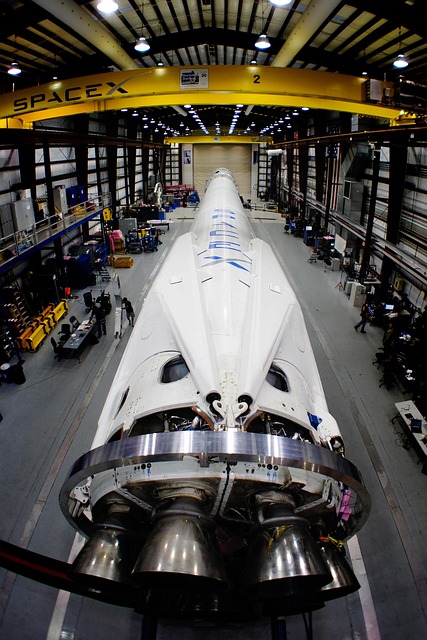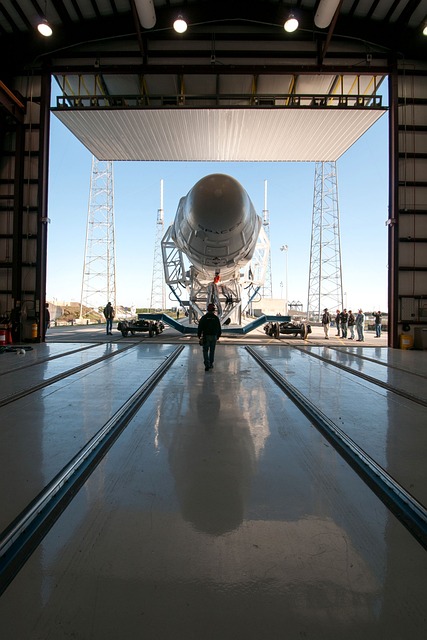
SpaceX Rocket Crash: Examining the Causes and Implications
Hello there, folks! I’m here to talk about a recent event that has sent ripples across the space exploration world: the crash of a SpaceX rocket. Now, this isn’t just any ordinary rocket, mind you, but a powerful beast designed to carry payloads to orbit. Its crash, therefore, has triggered a wave of questions and concerns about the future of commercial spaceflight.
As you know, SpaceX has been a leading force in this new era of private space ventures, pushing the boundaries of what’s possible. They've successfully launched satellites, astronauts, and even landed a rocket on a drone ship, all the while aiming to make space travel more accessible and affordable. However, this crash throws a wrench into the works, forcing us to reassess the risks and challenges associated with this burgeoning industry.
So, what caused this catastrophic failure? Was it a technological glitch, an unforgiving environment, or something else entirely? This is a question that investigators are currently trying to unravel. It’s like a detective story, only with much higher stakes. The initial reports suggest that the rocket might have experienced a malfunction during its ascent, leading to its inevitable plunge back to Earth. However, the investigation is ongoing, and we’re still waiting for definitive answers.
Delving Deeper: Potential Causes
While the exact cause of the crash remains elusive, we can explore a number of factors that might have played a role.
Technological Glitches
One possibility is that the rocket encountered a technological issue. These behemoths are complex machines, with a multitude of systems working in tandem. It’s conceivable that a sensor malfunction, a software error, or a hardware failure could have triggered the cascade of events that led to the crash.
Think of it like a complex jigsaw puzzle, where each piece has to fit perfectly. If even one piece goes awry, the entire picture can crumble. The same holds true for a rocket’s intricate systems.
Environmental Factors
The rocket's flight path and the conditions it faced during launch are crucial factors. Weather conditions, atmospheric density, and even the gravitational pull of the Earth can influence the rocket's trajectory. It’s possible that a sudden change in wind patterns, an unexpected atmospheric phenomenon, or an unforeseen gravitational anomaly could have affected the rocket’s stability and ultimately contributed to its demise.
Imagine a delicate dance, where the rocket is maneuvering through a dynamic environment. Even a slight misstep can have disastrous consequences.
Human Error
Let’s not rule out the possibility of human error. As intricate as the rocket’s systems are, human involvement is still a crucial aspect of the launch process. It’s conceivable that a miscalculation, a miscommunication, or a lapse in judgment could have contributed to the crash.
Even the most sophisticated technology relies on human operators. A simple oversight or misinterpretation can have far-reaching consequences.
Impact and Implications
The crash has stirred up a hornet's nest of concerns. First and foremost, there’s the immediate impact on the mission itself. The payload, whatever it was, is lost. It's like a domino effect. If the payload was vital for a scientific experiment, a communication network, or a commercial venture, its loss will be felt for a long time.
Beyond the specific mission, this event raises questions about the overall safety and reliability of commercial spaceflight. This is a nascent industry, and we’re still in the early stages of learning the ropes. Every setback, every incident, forces us to reassess our understanding of the inherent risks involved.
The financial implications are equally significant. SpaceX is a privately funded company, and a failed launch means lost resources. The company has to absorb the costs of developing and building the rocket, as well as the payload itself. This kind of loss can put a strain on any business, especially a young one with ambitions as grand as SpaceX’s.
The crash also feeds into the broader narrative of the space race. With several companies vying for dominance in the space exploration arena, each successful launch is a victory, each failure a setback. This incident could be seen as a blow to SpaceX’s reputation and its standing in this fierce competition. The company will need to demonstrate its resilience and commitment to innovation to regain public trust and continue to lead the charge in this exciting new frontier.
Looking Ahead
The crash of a SpaceX rocket serves as a stark reminder that space exploration is still a risky endeavor. The race to conquer the stars is not without its bumps and bruises. It’s a journey fraught with challenges and uncertainties. However, it’s also a journey filled with immense potential, pushing us to innovate and explore new frontiers.
This crash will undoubtedly be thoroughly investigated, and lessons will be learned. The space industry will adapt, innovate, and strive to mitigate such risks in the future. The human spirit of exploration is relentless, and this setback will only serve to fuel our determination to reach for the stars.
“Space exploration is not a luxury, it’s a necessity.” - Neil deGrasse Tyson
A Comparative Look: Past Rocket Crashes
This isn’t the first time a rocket has met an untimely demise. In fact, the history of space exploration is littered with launch failures, both by government agencies and private companies. Let’s take a look at some notable incidents:
Here is a table highlighting some of the most prominent rocket failures in history:
Year | Rocket | Agency/Company | Cause | Outcome |
1986 | Space Shuttle Challenger | NASA | O-ring failure due to cold weather | 7 astronauts killed |
2003 | Space Shuttle Columbia | NASA | Damage to heat shield during launch | 7 astronauts killed |
2014 | Antares rocket | Orbital Sciences Corporation | Engine failure | Payload lost |
2016 | Falcon 9 rocket | SpaceX | Fuel leak | Payload lost |
2023 | SpaceX rocket (unspecified) | SpaceX | Under investigation | Payload lost |
This table highlights the diverse nature of rocket failures. While some can be attributed to technological glitches, others point to environmental factors or human error. The causes can be intricate and interconnected, and the consequences can be devastating.
Technological Advancement and Risk
The space industry is constantly striving for technological advancement. We’re seeing the development of more powerful engines, lighter materials, and sophisticated guidance systems. These advancements are crucial for pushing the boundaries of what's possible in space exploration. However, with every new innovation, there's an inherent risk. New technologies are untested, and their reliability is yet to be fully established. This inherently increases the chance of unforeseen problems and failures.
Consider the recent advances in reusable rockets. While reusable rockets are a game changer, they come with their own set of challenges. They need to withstand the rigors of multiple launches and landings, which can wear down components and increase the likelihood of malfunctions. The quest for innovation, while essential, requires a careful balance between pushing boundaries and ensuring safety.
A Call for Transparency and Vigilance
The crash of a SpaceX rocket underscores the need for transparency and vigilance in the space industry. As commercial spaceflight continues to grow, it's crucial that companies maintain open communication with the public and regulatory agencies. Sharing information about potential risks, ongoing investigations, and lessons learned will build trust and ensure that safety remains a top priority.
The space exploration industry, like any other industry, is not immune to setbacks. But these setbacks can be valuable learning experiences, driving innovation and fostering a culture of safety and accountability. By analyzing the causes of failures, we can learn from past mistakes and work towards a future where space exploration is safer and more accessible than ever before.
Space for advertisement
SPACE EXPLORATION
Oct 26, 2024
SpaceX Rocket Crash: Examining the Causes and Implications
SpaceX rocket crash: Examining the causes and implications for the space industry.

